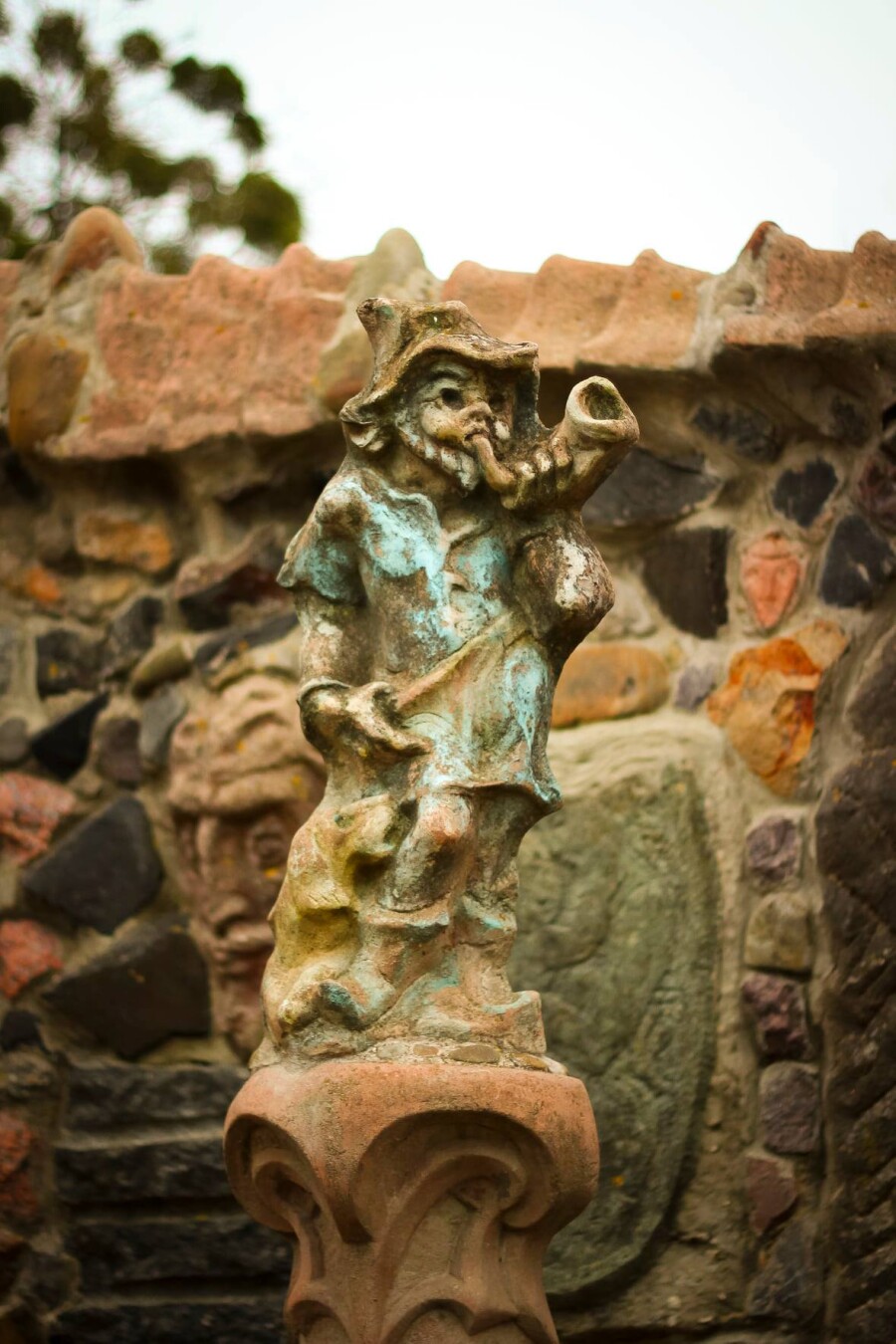Знайомтесь- Микитович! Meet Mykytovych!

Знайомтесь- Микитович!
Як люди освічені, кликуни люблять мистецтво і розуміють його, тому дуже часто ходять відпочивати до будинку скульптора, аби поговорити з ним та випити кварту вина. Якщо уважно придивитесь, то серед 500 скульптур, що прикрашають цей будинок, зможете побачити і кликуна, який пригрівся на осонні.
Кликун (або глашатай) – давня шанована професія у європейських містах доби Середньовіччя (XV-XVIІ ст.), яка полягала, перш за все, в інформуванні міщан про найважливіші події міста і країни. Кликуни повідомляли жителям міст найрізноманітнішу інформацію: оголошували королівські укази, розпорядження магістрату – міського уряду, сповіщали городян про збір податків, про вшанування уславлених полководців, прибуття в місто чужоземних послів, чергову роздачу хліба або грандіозну циркову виставу, виклик громадян до суду, винесення вироків, виконання страт тощо. Будь-яка важлива юридична справа підлягала «обволанню» кликуном у людних місцях. У Луцькому замку кликуни, окрім іншого, стояли на нічній варті та «кликали» – постійно перегукувалися, а в разі пожежі чи нападу ворогів били на сполох. Звідси й пішла місцева назва професії — кликун. Нині головний Луцький кликун сурмить з В'їзної вежі Луцького замку протягом туристичного сезону у будні о 12.00, у вихідні та святкові — о 12.00 та 18.00.
Фото Юлії Барбарук
Meet Mykytovych!
Being educated, klykuns love art and understand it, so they often go to the house of sculptor to have a rest, to have a talk to a sculptor and drink some wine with him. If you look closely, you will find a klykun among 500 sculptures that decorate the house.
Klykun (or herald) is an ancient profession respected in the European cities of the Middle Ages (15th-17th centuries) which, first of all, consisted in informing the citizens about the most important events of the city and the country. Klykuns provided the inhabitants with a variety of information: announced royal decrees and orders of the magistrate (the city government), informed citizens about the collection of taxes, the honouring of famous commanders, the arrival of foreign ambassadors in the city, the next distribution of bread or a grand circus performance, the warnings to appear in court, the pronouncement of sentences and executions, etc. Any important legal case had to be “shouted” by the klykuns in crowded places. In Lutsk Castle klykuns, among other things, stood as a night guard, constantly “cried” to each other and alerted in case of fire or enemy attack. In that case appeared the local name of the profession – klykun (or “Crier”). Now the main Lutsk klykun trumpets from the Entrance tower of Lutsk castle during tourist season on weekdays at 12 o’clock and on weekends at 12 and 18 o’clock.
Foto by Yuliya Barbaruk
